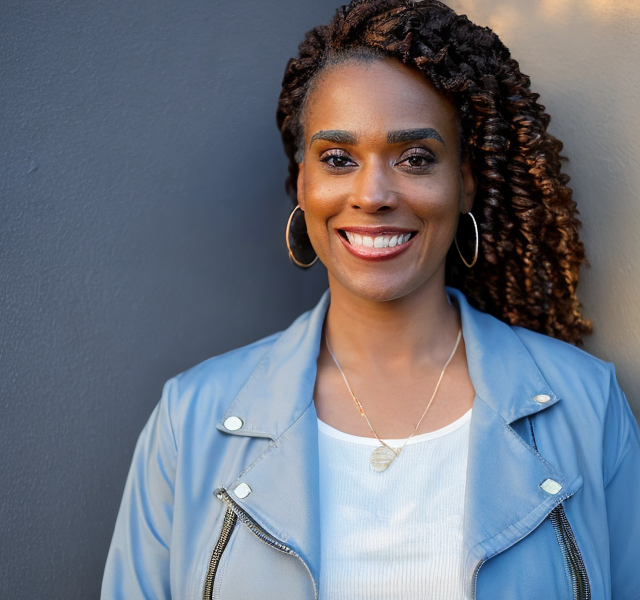In a world that often seems critical and demanding, cultivating self-love becomes an empowering journey of resilience and inner strength. The pressures of society can make it challenging to prioritize our well-being, but fostering self-love is not only possible but essential for our mental and emotional health. Let’s explore some practical strategies to cultivate self-love in the face of external criticism.
Practice Self-Compassion Amidst Criticism: Self-compassion is a powerful tool in navigating a critical world. It prompts us to view criticisms as external reflections of societal norms or individual perspectives rather than as objective assessments of our worth. By reframing criticism in this way, we gain the ability to detach our self-worth from external opinions. Self-compassion involves being gentle with oneself during challenging times. Instead of berating ourselves for perceived failures or shortcomings, we learn to offer kindness and understanding. This practice creates a nurturing internal dialogue that fosters resilience in the face of external pressures. Acknowledging that everyone faces criticism is a fundamental aspect of self-compassion. Recognizing the shared human experience of dealing with judgment allows us to cultivate a sense of common humanity. We are not alone in facing external scrutiny, and understanding this universal truth helps diminish feelings of isolation and inadequacy. Perhaps the most vital aspect of self-compassion is understanding that we are all multifaceted individuals with strengths, weaknesses, and unique qualities. Instead of viewing criticism solely as a negative force, self-compassion allows us to extract valuable lessons from feedback. By approaching critiques with an open mind and a self-compassionate attitude, we can discern areas for growth and improvement without compromising our sense of self-worth.
Embrace Imperfections: Societal expectations, perpetuated by media, advertising, and social platforms, often present an idealized version of beauty and success. Embracing imperfections challenges these norms, highlighting the importance of genuine self-expression over conformity. It’s a declaration that individuality is more valuable than a homogenized version of perfection. Embracing imperfections allows individuals to reveal their authentic selves. Stripping away the mask of perfection unveils the raw, genuine person underneath, fostering connections based on authenticity rather than curated images. It becomes an invitation for others to do the same, creating a culture of genuine acceptance. Imperfections add a unique and captivating beauty to individuality. Just as a piece of art gains character from its flaws, so too does each person from their imperfections. It’s in the quirks, scars, and idiosyncrasies that a person’s true beauty emerges, creating a visual and emotional tapestry that tells a rich and diverse story. The pursuit of perfection often fuels the dangerous cycle of constant comparison. Embracing imperfections breaks free from this trap, allowing individuals to appreciate their uniqueness without measuring it against unattainable standards. It’s a conscious decision to define one’s worth independently of external benchmarks. Embracing imperfections promotes diversity and inclusivity. It sends a powerful message that there is beauty in every shape, size, and uniqueness. This celebration of diversity creates a more inclusive and accepting society, breaking down the rigid walls of narrow beauty standards. Embracing imperfections is a fundamental act of self-love. It involves acknowledging that personal worth extends beyond physical appearance or societal achievements. By embracing imperfections, individuals affirm their intrinsic value, fostering a positive self-image and a resilient sense of self-love.
"You are your best thing."
- Toni Morrison
Surround Yourself with Positivity: The people we surround ourselves with wield tremendous influence over our thoughts, emotions, and behaviors. Positive influences inspire and uplift, creating an environment where self-love can grow organically. Whether through shared experiences or supportive words, these influences shape our perceptions of ourselves and the world around us. Healthy relationships are characterized by mutual upliftment. Surrounding oneself with individuals who genuinely celebrate successes, offer encouragement during challenges, and provide a supportive presence fosters a positive atmosphere. This mutual upliftment becomes a foundation for building self-love as it reinforces the idea that one is worthy of love and support. Positive relationships provide emotional safety, creating a space where individuals can be vulnerable without fear of judgment. This emotional safety allows for authentic self-expression, essential for cultivating self-love. In such relationships, individuals feel free to share their thoughts, feelings, and imperfections, knowing they will be met with understanding and compassion. Recognizing and minimizing interactions with toxic influences is equally important. Individuals who consistently undermine, criticize, or drain positive energy can hinder the development of self-love. Setting boundaries with those influences or mindfully distancing oneself from such influences (if setting boundaries does not work) allows room for healthier relationships to take center stage. Positive relationships often stem from shared values and mutual encouragement. Surrounding oneself with people who align with personal values creates a supportive community where individuals can authentically express themselves. Shared encouragement reinforces the idea that self-love is a collective journey.
Set Realistic Expectations: Acknowledging and unmasking unrealistic expectations is the first step towards cultivating self-love. Often, these expectations are rooted in societal standards, comparison, or an internalized desire for perfection. Recognizing these unrealistic ideals allows for a conscious decision to release their grip on one’s self-worth. Unrealistic expectations can create a toxic cycle of perpetual dissatisfaction. When individuals continuously strive for unattainable goals, the gap between aspirations and reality widens, leading to feelings of inadequacy and self-criticism. Recognizing this cycle is essential in breaking free from the damaging impact of unrealistically high standards. Embracing self-love involves a compassionate examination of one’s goals and expectations. Individuals can ask themselves whether their expectations are rooted in genuine personal values or influenced by external pressures. This self-reflection opens the door to setting goals that align with authentic desires and aspirations. The key to releasing pressure lies in setting achievable goals. These goals should be realistic, measurable, and aligned with individual capacities and timelines. By breaking down larger objectives into smaller, manageable tasks, individuals create a roadmap for success that fosters a sense of accomplishment. Shifting the definition of success is crucial in releasing the pressure of unrealistic expectations. Success doesn’t always have to be monumental; it can be found in the journey, the lessons learned, and the personal growth experienced along the way. Redefining success allows individuals to appreciate their efforts and achievements, reinforcing self-love. Achieving even the smallest goals is cause for celebration. Cultivating self-love involves recognizing and celebrating these small wins. Each accomplishment, no matter how minor, contributes to building a positive self-image and reinforces the understanding that progress, no matter how gradual, is significant.

Mindful Social Media Use: In an era dominated by social media, where curated images of perfection often flood our feeds, it’s crucial to approach these platforms mindfully. Social media can indeed be a double-edged sword, with its potential to both inspire and foster feelings of inadequacy. Social media can lead to a comparison trap where individuals measure their lives against the seemingly perfect lives of others. This can erode self-esteem and contribute to feelings of inadequacy. Mindful use involves recognizing these pitfalls and consciously choosing not to engage in detrimental comparison. Actively curating your social media feed is a powerful way to shape your online experience. Follow accounts that share positive, uplifting, and authentic content. This can include motivational quotes, genuine personal stories, and accounts that promote self-love and body positivity. By surrounding yourself with positivity, you contribute to a healthier digital environment. Mindful social media use requires the courage to unfollow accounts that perpetuate unrealistic beauty standards or make you feel less than worthy. Create a space that uplifts and inspires you, unfettered by content that induces negative self-perception. Behind every carefully curated image lies a human experience rich with complexities and imperfections. It’s essential to remind yourself that social media often showcases a highlight reel rather than the full story. Practicing empathy and understanding that everyone faces challenges fosters a more compassionate perspective towards yourself and others. Mindful social media use involves setting boundaries on screen time. Excessive use can contribute to feelings of inadequacy and a distorted sense of reality. Allocate specific times for social media consumption and balance it with other activities that contribute positively to your well-being. Instead of relying solely on online interactions, prioritize real connections. Engage in face-to-face conversations, strengthen relationships with friends and family, and participate in activities that promote genuine human connection. Balance your digital life with a rich, offline existence. Mindful social media use involves regular reflection on your emotional responses to content. If you find yourself feeling distressed or anxious after scrolling through your feed, take a step back and evaluate the content that triggers these emotions. Adjust your online environment accordingly.
Practice Self-Care Rituals: In the hustle and bustle of everyday life, carving out time for self-care is a transformative act of self-love. Developing intentional self-care rituals that cater to your physical, emotional, and mental well-being is a powerful commitment to nurturing a harmonious relationship with yourself. Self-care is not a luxury; it’s a fundamental aspect of well-being. It involves intentional actions that prioritize and nurture your physical, emotional, and mental health. Understanding that self-care is an essential investment in yourself lays the foundation for building a resilient and loving connection with your own being. Physical self-care rituals contribute to overall health and vitality. Whether it’s a nourishing meal, regular exercise, or a rejuvenating sleep routine, these practices demonstrate a commitment to your body’s well-being. Engaging in activities that promote physical health enhances energy levels, boosts confidence, and fosters a positive relationship with your body. Emotions are an integral part of the human experience, and caring for your emotional well-being is crucial for self-love. Practices such as journaling, expressing feelings through art, or engaging in activities that bring joy and laughter contribute to emotional resilience. These rituals provide an outlet for expression and help cultivate a deeper understanding and acceptance of your emotional landscape. Nurturing mental well-being is vital for maintaining clarity and focus. Mindfulness meditation, deep breathing exercises, or engaging in intellectually stimulating activities are powerful self-care rituals for the mind. These practices create a space for mental rejuvenation, reducing stress, and reinforcing a positive mindset. Consistency is the backbone of effective self-care. Establishing a routine that incorporates self-care rituals into your daily or weekly schedule reinforces the habit and sends a powerful message of commitment to your well-being. Regularity in self-care practices nurtures a sense of stability and predictability in your life. Self-care rituals are not static; they evolve with your changing needs and circumstances. Being open to adapting and evolving your self-care practices ensures they remain relevant and effective in different phases of your life. This adaptability reflects a dynamic commitment to your ongoing journey of self-love.
Seek Professional Support: In the intricate tapestry of self-love, there are moments when external criticism or internal self-doubt can become overwhelming, creating a need for external guidance and support. This is where the role of therapists and counselors becomes pivotal. Seeking professional support is not a sign of weakness but a courageous and proactive step toward building resilience, navigating challenges, and fostering self-love. Professional support offers an objective perspective on personal challenges. Therapists are trained to provide insights that may be challenging to see from within the situation. This external viewpoint can be a catalyst for personal growth, helping individuals reframe their experiences and foster a more positive self-image. Therapists equip individuals with valuable coping strategies to navigate external criticism and manage internal self-doubt effectively. These strategies go beyond short-term solutions, providing individuals with the tools needed to build resilience, cope with stress, and cultivate a healthier relationship with themselves over time. Emotional resilience is a key component of self-love. Therapists work collaboratively with individuals to build emotional resilience, helping them bounce back from setbacks, face challenges head-on, and develop a more positive outlook on life. This process contributes to a deeper and more enduring sense of self-love. The therapeutic relationship itself becomes a powerful catalyst for self-love. The support, understanding, and empathy provided by therapists create a safe and non-judgmental space where individuals can explore their innermost thoughts and emotions, fostering a profound sense of self-acceptance and love.
Cultivating self-love in a critical world is an ongoing process that requires patience and dedication. By embracing self-compassion, surrounding ourselves with positivity, and celebrating our uniqueness, we can foster inner resilience and thrive in the face of external pressures. Remember, the journey to self-love is uniquely yours, and every step forward is a victory in reclaiming your worth and embracing the beautiful essence of who you are.
If you need help on your self-love journey and want to connect with a mental health professional, I can help. I provide a 15 minute FREE consultation for individuals seeking my services.
Click here to set up a consultation. If you want to know more about the services I offer, click here.




